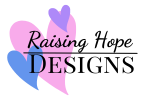
I feel like any blog I’ve written lately has started with. “It’s been a while since I’ve written a blog” but I think this is the longest break it’s been and once again, life has just been super busy. But I thought I’d share a short blog about some of the questions I’ve been asked that were both surprising and confusing. Questions that I never expected to be asked.
“Are they identical?"
This isn’t related to Down syndrome but something I was asked a lot when the twins were first born. I would get the usual “oh are they twins, wow”, and I’d tell them their names, Hope and Alexander, but no matter how much information I gave, I would still often get asked the question, “are they identical?” In my mind, I would be thinking, “are you serious? One is a boy and one is a girl, they cannot be identical,” but I came to the realisation that perhaps it was just one of the many questions people asked when they discover someone has had twins. This question was often followed by the next…
“How does one have Down syndrome and not the other?”
After explaining that they were not identical. I often had to find myself explaining fraternal twins. Each twin had a different egg and a different sperm, they are completely separate individuals right from the beginning which is how one has Down syndrome and the other doesn’t. I still get this question even as they grow up, and I imagine it will never stop. I did actually wonder how common it is to have one twin with Down syndrome and another without, and it turns out it is more common than you would expect. I’ve come across a few people on Facebook who have the same situation, and even the midwives said it is more common than you would expect.
“Was she born with it?”
This is the question that completely shocked me just recently. Down syndrome is not something you can “get” or “catch” as you grow up. It’s in the chromosomes, which are small packages of genes within the body that determine how a body forms and develops. Those with Down syndrome have an extra 21st chromosome and that starts way back when the baby is being formed. You can’t do anything to stop a child from having Down syndrome.
“What level of Down syndrome does she have?”
I kind of understand this question, it’s not so much a shocking one, but I thought I would include it anyway. It’s true that people with Down syndrome can range in abilities however, there’s no level classifications and no way of knowing at an early age exactly what a child is going to be capable of growing up. The level of ability will hugely be affected by the effort that is put in as a child. For a child to succeed and be capable of much, they need to be trained, as does any child. If you don’t put in the work, they won’t learn and as they’re older, they may “seem” to have a more severe case of Down syndrome. Kids with Down syndrome are like all other children. Some will be better at some things than others.
“Every individual with Down syndrome ahs their own strengths and weaknesses… Given the right support, they can accomplish a lot.” (Mary Pipan, MD, behavioural paediatrician)
It’s these questions along with the many other less shocking questions, that make us realise just how little people still know and understand about Down syndrome and makes us want to work twice as hard at bringing more awareness and acceptance. There’s so much we could do, but we need more hours in the day or more days in the week to make it all happen, so we’ll continue to do what we can.

This Post Has 0 Comments